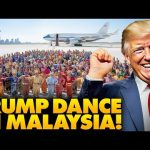In today’s increasingly polarized landscape, conversations about the future of American democracy often tread into unsettling waters. It is during moments of shared societal discourse that whispers of division and despair creep into the hearts of everyday citizens. Discussions about citizenship, government accountability, and the notion of civil unrest bring to light a scarier reality from our nation’s past, where lines were drawn, and turmoil reigned. The significance of maintaining a tranquil society cannot be overstated, especially when echoes of history remind us just how precarious peace can be.
As conversations unfold about what it would mean to seek alternative citizenship, it reveals a deeper anxiety about belonging and security. This notion, suggested by a long-time friend no less, strikes at the core of identity and loyalty. When friends suggest such drastic changes, it can feel like a silent calling to introspection. Are we witnessing a shift in the moral fabric of our nation? The history books are filled with tales of divisions that lead to turmoil, and now those same questions linger in conversations about the possibility of a civil war within our borders. If history teaches us anything, it is that the thirst for power can corrupt even the noblest of intentions.
The discussion veers into dangerous territory when examining the consequences of a government that uses power against its own people. Imagining a future where those in power target individuals for their beliefs creates an environment of trepidation. If those who speak up for personal liberties are at risk, how quickly will silencing become a standard practice? This scenario instills fear more potent than the reality of conflict itself. Throughout history, like with the collapse of empires, the slow erosion of trust in the government paved the way for larger societal upheaval. As distrust grows, ordinary citizens may find themselves in roles they never imagined they would play.
The warning signs are unmistakable. The discussion hints at a new chapter in American history, one that reflects the turmoil of its past. The idea of a “color revolution” manifests more like a specter haunting the nation, calling out to those born of a desire for social change but risking the delicate balance of peace. Each societal eruption, whether spurred by economic strife or political disagreement, mirrors the conflicts of the past that once tore nations apart. Much like the echoes of past revolutions, the current political climate warns us that the fires of anger can quickly grow into an uncontrollable blaze, engulfing everything in their path.
However, amidst this overwhelming darkness, there shines a glimmer of hope. The resilience of the human spirit often prevails; despite the challenges ahead, the echoes of those who fought for freedom and justice resonate in the hearts of many. The call to action is to uphold the values of truth, integrity, and compassion in times of uncertainty. Every generation faces crossroad moments, and it is vital to remember the lessons left by those who have come before. If society collectively chooses to foster a culture of unity rather than division, to encourage dialogue over silence, it may just steer the world away from the precipice of chaos.
As the narrative unwinds in America today, thoughtful reflection on the past is paramount. History not only offers the wisdom of what has been but also serves as a guide for what may come. By harnessing the knowledge of bygone eras, citizens are reminded that although the future may feel daunting, the power to shape it lies in the hands of the people. The dialogue must continue, and the engagement must be steadfast, lest the darkness become too overwhelming to bear. In these tumultuous times, the collective voice of a nation courageously embracing its heritage could very well be the beacon that leads us back to solidarity and peace.




